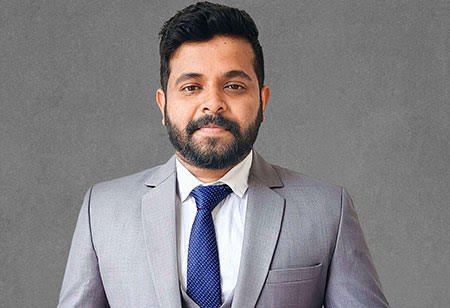
A Culture of Solving Societal Challenges

 According to a World Health Organization (WHO) report, injuries claim 4.4 million lives in a year globally, accounting for 8 percent of deaths in the world. Delving deeper, there is a noticeable pattern of fall-related deaths rising faster than any other type of injury over the past two decades, resulting in over 684000 deaths each year. The reasons can be traced back to factors such as ageing populations, urbanisation, and increasingly sedentary lifestyles. Clearly, efforts are needed to alleviate this challenge and provide people with better opportunities for survival. But on which shoulders does that responsibility fall? Central governments or state governments? Healthcare departments? Well, if we aim for a significant reduction in injury-related deaths, every sector and every industry must shoulder their share of responsibility.
According to a World Health Organization (WHO) report, injuries claim 4.4 million lives in a year globally, accounting for 8 percent of deaths in the world. Delving deeper, there is a noticeable pattern of fall-related deaths rising faster than any other type of injury over the past two decades, resulting in over 684000 deaths each year. The reasons can be traced back to factors such as ageing populations, urbanisation, and increasingly sedentary lifestyles. Clearly, efforts are needed to alleviate this challenge and provide people with better opportunities for survival. But on which shoulders does that responsibility fall? Central governments or state governments? Healthcare departments? Well, if we aim for a significant reduction in injury-related deaths, every sector and every industry must shoulder their share of responsibility.
Academic institutions are no strangers to this responsibility. Mahidol University, Thailand, is setting a great example with its latest interventions. A few months ago, the WHO signed a Memorandum of Understanding with Siriraj Hospital of Mahidol University to strengthen collaboration on trauma, injury, and fall prevention across the WHO South-East Asia Region. The initiative aims to address the growing health, social, and economic challenges posed by these issues. Commenting on the occasion, Prof. Apichat Asavamongkolkul, the Dean of the Faculty of Medicine, Siriraj Hospital, Mahidol University, said, “As a leading university medical center, Siriraj is deeply committed to fall injury prevention, education, and timely treatment, including performing hip surgery within 48 hours.” In truth, over the years, Mahidol University has not only been adept at intervening in societal challenges but also excellent at producing business leaders with the same vision. In this special yearly issue of CEO Insights, we are shedding more light on prestigious alumni of Mahidol University.
Do let us know your thoughts.
